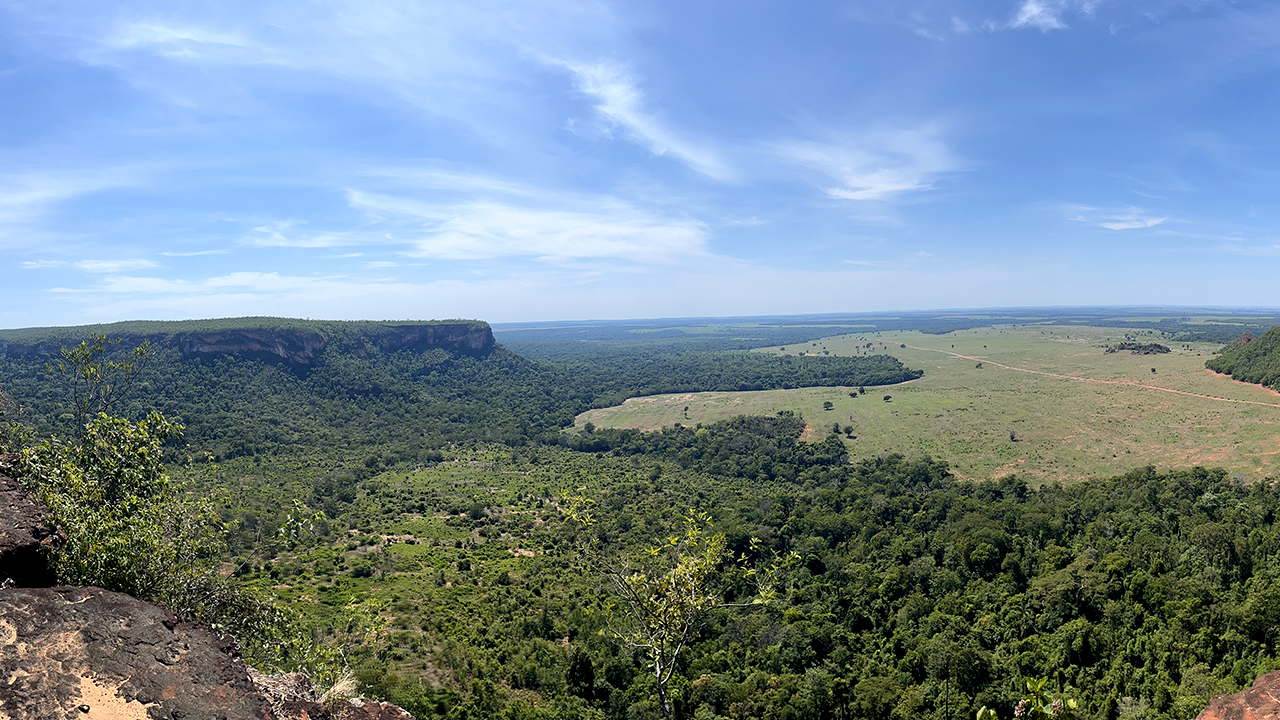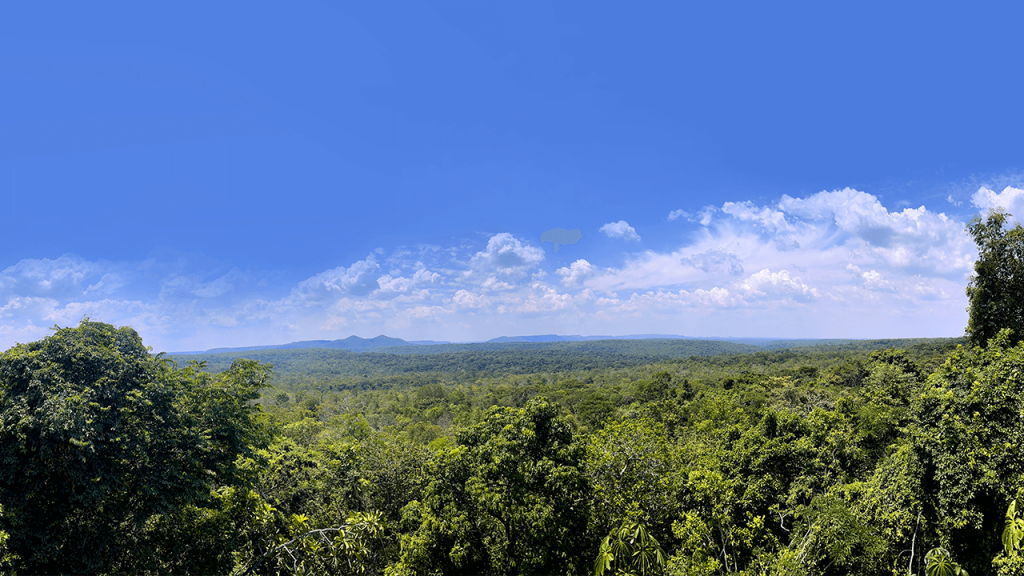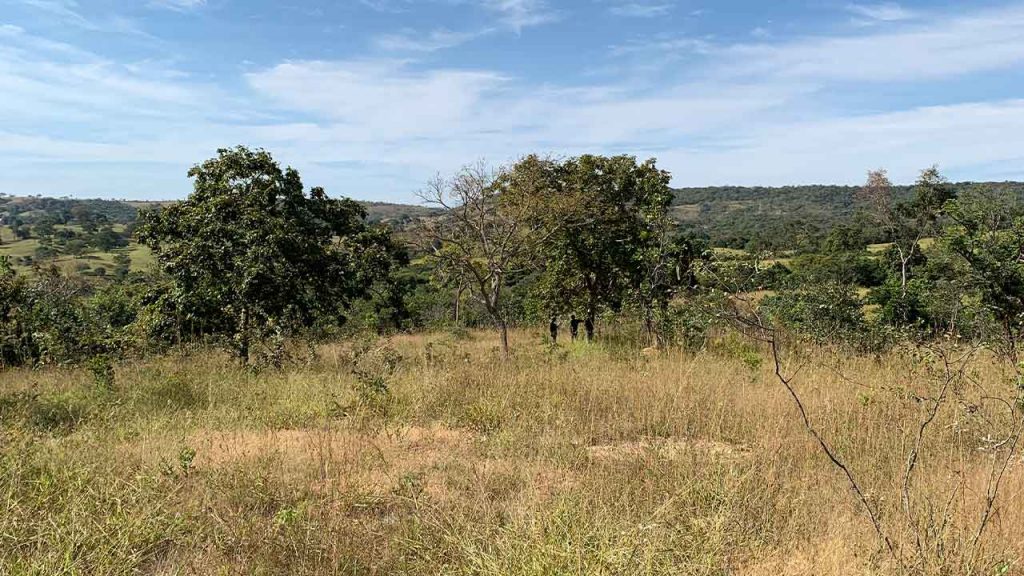Bio2me is part of the Cerrado Sustainable Soy Program (PSSC)
Model for the sustainable management of bioactive products presented to farmers and market players

What if we could show farmers that conservation can be a profitable activity and become a complementary source of income on properties with surplus of native vegetation or private protected areas?
Based on this question—and with the answer down pat—Bio2me was one of the startups selected for the Cerrado Sustainable Soy Program (PSSC). The initiative is promoted by PwC’s AgTech Innovation and the Land Innovation Fund (LIF), in strategic partnership with Cargill, CPQD, EMBRAPII, and EMBRAPA, and drives innovation in agribusiness with a focus on deforestation-free production.
With a business model based on the operation of farms and the sustainable management of bioactive products in the Cerrado, Bio2me operates in conservation or unproductive areas, identifying the best land and transforming it into investment opportunities, committed to structuring the operation from end to end, with a vertical integration approach from seed to table.
Based on this structured operation across the entire chain, Bio2me joined the PSSC by proposing an initiative that involves assessing the production potential of farms selected for the bioactive substances from the baru and fava d’anta, applying Artificial Intelligence (AI) and Internet of Things (IoT) technologies, training in handling and collection and, finally, selling these bioactive products. This initiative also includes planting of genetically improved baru seedlings on the three properties, produced in the nursery of the Bio2me Group.
“What we’re doing is showing in practice the feasibility of a business plan focused on monetizing conservation areas—whether private protected areas or surplus of native vegetation on the properties. We are bringing information to landowners about the bioactive potential of their farm, how to structure this type of operation without losing their main focus, sustainable management, collection, processing, and marketing of bioactive products,” explains Patricia Egreja, CTO of Bio2me.
The farms selected are located in the cities of Diamantino, MT, Brejo, MA and Aparecida do Rio Negro, TO, Cerrado regions with different types of vegetation, a factor that will also be useful to increase the understanding of the applicability of the work under different conditions.
The properties have already been visited and had their native forest areas mapped using drones. The neural network technology developed by Bio2me identifies trees of commercial value and assesses the farms’ potential for producing bioactive products with a high market value.
“We could note the curiosity and interest of farmers when we presented the proposal. We didn’t even have to look for anyone interested in taking part in the project, they made themselves available to get to know our model,” she adds.
The idea is to show producers a new way of looking at their land: instead of considering areas of native forest as idle, bearing the costs of maintaining these areas, they can see them as sources of income.
Through the intelligent management of bioactive products, farmers can diversify their sources of income, conserve biodiversity, and reinforce a positive sustainability agenda.
The use of AI and IoT technologies makes the identification and management process more efficient and self-sufficient.
This is what we did, for example, at the Nossa Senhora Aparecida farm in Mato Grosso, owned by farmer Lígia Pedrini, age 27. In June, she received the Bio2me team to fly a drone over the native vegetation areas on her property and map the existing species.
“I was interested in the possibility of monetizing a restricted area. Retaining a conservation area generates expenses, maintenance costs, and involves the installation of firebreaks to prevent the risk of wildfires, which have occurred in the past. It’s become increasingly difficult to make a profit, our costs are in US dollars,” explains Lígia.
“We’ve already considered a number of alternatives, such as setting up a small pequi canning factory or producing honey, and even opening an inn, since it’s such a beautiful area. But this takes time, energy, and knowledge. And we don’t have the know-how. Farmers need to focus on their core business,” she adds, explaining why she became interested in the model proposed by Bio2me to manage conservation areas.
Bio2me operates farms on its own land, land exploited in partnership or leased, offering professional management, technology, multidisciplinary team, and a structured production chain for high-value biodiversity assets on the market.
The technology also gives transparency to the operation: by mapping and tagging the trees of commercial interest on each farm, the owner knows exactly what the expected production will be.
Although the Diamantino region doesn’t have large volumes of baru, there are plenty of pequi trees, as Lígia already suspected. She is now waiting for Bio2me’s technical staff to complete their assessment of the property in order to find out the site’s production potential.
“My father is very entrepreneurial and innovative. And I like trying out new things. But what we really need is a business plan, to structure the chain and everything else,” explains Lígia, who, as well as being a farmer and agronomist, has a profile on social media (@ligiapedrini), where she talks about production techniques and day-to-day farming.
Innovation ecosystem helps mature the business
In addition to bringing entrepreneurs closer to these agents, partnerships like this offer more support and help confirm this idea.
The PSSC is one of the main initiatives to promote new ideas for sustainable production in the Cerrado biome, bringing together under the program all the links in the agricultural supply chain: the private sector, which provides inputs on the commercial viability of the idea, researchers, mentors, and specialists for technical support, financial support, and the farmers’ point of view to understand how these projects can be improved and confirm that the idea makes sense in the field.
“Bio2me and the other startups selected address some of the greatest challenges faced by agricultural and environmental agendas. Our focus is to foster the creation of innovative solutions for sustainable agricultural development, free from deforestation and conversion of native vegetation,” explains Ashley Valle, Director of the Land Innovation Fund.
Since 2021, the program has received more than 300 applications for its selection processes and 34 startups have been selected—including Bio2me—to develop or accelerate their projects.
The funds received from the PSSC have been invested in new technologies, such as the purchase of a new, more advanced and robust drone for assessing properties.
These connections also create new opportunities, such as two partnerships recently entered into by Bio2me. One of them, together with the Innovation Center of the Federal Institute of Paraíba, linked to EMBRAPII will develop a baru nut extraction machine.
The other gave rise to a study evaluating the use of baru pulp in animal feed for ruminants, together with the Agricultural Sciences Center of the Federal University of Piauí. These are new actions that should support the development of the baru chain and market.
“Studies into the use of baru pulp—a by-product of our production process—in animal nutrition can bring cost advantages to farmers, and the machine to automate the extraction of the nut will facilitate our gains in scale. Both initiatives are already ongoing. Nestlé also invited us to its open innovation platform, Panela Nestlé, based on our work within this ecosystem,” adds Patricia.
With this, Bio2me is maturing rapidly, expanding its audience and diversity of situations in which it applies and tests its model, while structuring a complete chain for bioactive products, with sustainable management and monetization of conservation areas.
This story of alliances and innovation in the Cerrado biome is proof of how technology and development can create a more sustainable future for farmers and the environment.
“What we’re doing is showing in practice the feasibility of a business plan focused on monetizing conservation areas—whether private protected areas or surplus of native vegetation on the properties.”
Patricia Egreja, CTO of Bio2me
“I was interested in the possibility of monetizing a restricted area. We’ve already considered a number of alternatives, such as setting up a small pequi canning factory or producing honey, and even opening an inn, since it’s such a beautiful area. But this takes time, energy, and knowledge. And we don’t have the know-how.”
Lígia Pedrini, farmer and agronomist, Nossa Senhora Aparecida Farm in the state of Mato Grosso
“Bio2me and the other startups selected address some of the greatest challenges faced by agricultural and environmental agendas. Our focus is to foster the creation of innovative solutions for sustainable agricultural development, free from deforestation and conversion of native vegetation.”
Ashley Valle, Director of the Land Innovation Fund (LIF)

